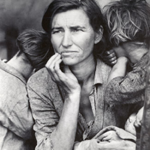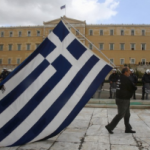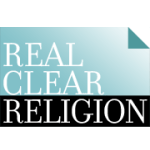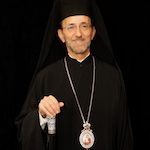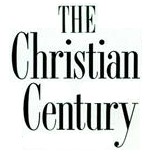
Deprecated: trim(): Passing null to parameter #1 ($string) of type string is deprecated in /home/aoiusa/public_html/wp-content/plugins/sexybookmarks/public.php on line 388
Deprecated: trim(): Passing null to parameter #1 ($string) of type string is deprecated in /home/aoiusa/public_html/wp-content/plugins/sexybookmarks/public.php on line 394
Deprecated: trim(): Passing null to parameter #1 ($string) of type string is deprecated in /home/aoiusa/public_html/wp-content/plugins/sexybookmarks/public.php on line 400
 First of all, let’s dispense with the pejoratives:
First of all, let’s dispense with the pejoratives:
Conservative and nationalist wings within the churches have held demonstrations in Athens and Moscow and claim that the cards will compromise national and religious identity. Many have gone so far as to say that identity numbers such as 666 are the “mark of the beast” from the Book of Revelation, the final book of the New Testament.
Archimandrite Iannuarii Ivliev, a professor of biblical studies at the St. Petersburg Theological Academy told the May edition of Neskuchny Sad, a Russian Orthodox magazine, that the obsession with symbols such as 666 are the result of a primitive interpretation of the Book of Revelation.
All that might be true, but it is beside the point. Let’s examine instead the salient point:
Patriarch Kirill II of the Russian Orthodox Church told a meeting of the Bishop’s Council of the Russian Orthodox in February that “the church understands the position of people who do not wish to be subject to control that makes it possible to gather all-encompassing information about their private life, and could in the long-term be used to discriminate against citizens based on their world view.”
I’m with Pat. Kirill on this one. Why would Europeans want to relinquish all their private information to EU bureaucrats? Think of it this way: Do Americans want all their health information open to committees of bureaucrats appointed by such people as HHS Secretary Kathleen Sebelius, Hillary Clinton, John Kerry, or Barbara Boxer and the like? I don’t. And what happens if radical secularists gain control of the government? What happens if the moral foundation of culture is inverted and Christian values are outlawed, and action against the outlaws will appear the rationale and sane action to take? This is precisely Pat. Kirill’s warning and it is one we need to think long and hard about.

Source: The Christian Century | Sophia Kishkovsky
Moscow, April 26 (ENInews)–The Russian and Greek Orthodox churches are objecting to plans in both countries to introduce electronic national identity cards intended to streamline bureaucracy and, in the case of Greece, facilitate integration into the European Union.
Church officials are demanding close study of the cards and asking that authorities make them optional. They say that the personal and financial information that would be consolidated on the microchips in the cards could be manipulated to discriminate against believers.
In an interview with Rossiiskaya Gazeta, an official government newspaper, earlier this month, Metropolitan Hilarion of Volokolamsk, chairman of the Moscow Patriarchate’s Department of External Church Relations, said: “Credit cards, which a person uses to take money from a bank machine or for payment in a store, are one thing, but a personal card in which all the information about a person’s life and activities will be entered, about his bank accounts, health and travels is a different matter. These are different grades of state control over people.”
Conservative and nationalist wings within the churches have held demonstrations in Athens and Moscow and claim that the cards will compromise national and religious identity. Many have gone so far as to say that identity numbers such as 666 are the “mark of the beast” from the Book of Revelation, the final book of the New Testament.
At a demonstration in Moscow on 16 April, Orthodox nationalists joined forces with members of the Communist Party of the Russian Federation. The Communists also oppose the Universal Electronic Card (UEC), which is scheduled to be introduced in Russia next year.
Segodnia.ru, an Internet publication that often covers religious and nationalist issues, commenting on the demonstration, said, “the introduction of the UEC makes it possible to build an unheard of, super-totalitarian electronic dictatorship, in which each individual person becomes a remote-controllable bio-object, for all practical purposes a robot with a bar code on his body or a microchip implanted under his skin.”
Patriarch Kirill II of the Russian Orthodox Church told a meeting of the Bishop’s Council of the Russian Orthodox in February that “the church understands the position of people who do not wish to be subject to control that makes it possible to gather all-encompassing information about their private life, and could in the long-term be used to discriminate against citizens based on their world view.”
On 27 March, thousands of Greek Orthodox priests, monks, nuns and lay people marched through Athens to the Greek parliament building in protest.
In April, the Synod of Bishops of the Church of Greece expressed its concern about the cards and said it would hold meetings with top government officials. Metropolitan Prokopios of Philippi, Neapolis and Thasos, who chairs the synod’s committee on dogmatic and canonical questions, reported that as a result of preliminary talks with the Greek government, the church had received assurances that, among other things, the numerals 666 would not appear in the cards in any form.
Archimandrite Iannuarii Ivliev, a professor of biblical studies at the St. Petersburg Theological Academy told the May edition of Neskuchny Sad, a Russian Orthodox magazine, that the obsession with symbols such as 666 are the result of a primitive interpretation of the Book of Revelation.
“Many years of atheism and the ban on all Christian education has had a poisonous effect,” he said. “Several generations of people have grown up whose religious consciousness, through no fault of their own, is on the most primitive level. They are baptized, but unfortunately not enlightened by the light of Christ’s Gospel … They think that they are under siege from all sides by ‘demonic forces.'”
He said the Bishop’s Council of the Russian Orthodox Church asked the government to make electronic forms of identification optional.
